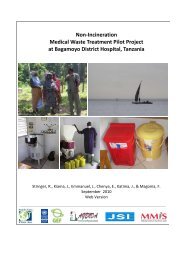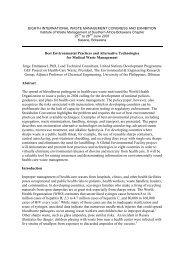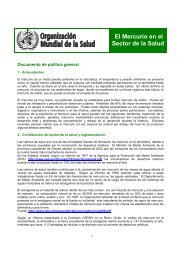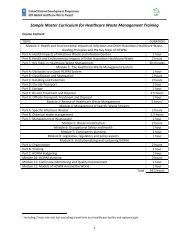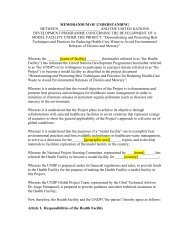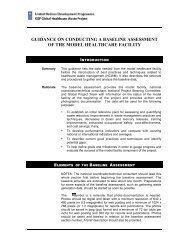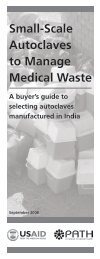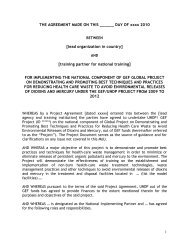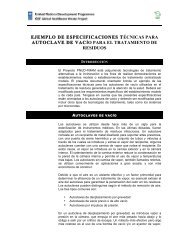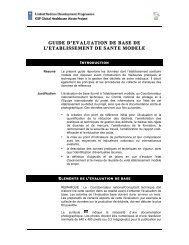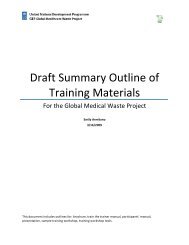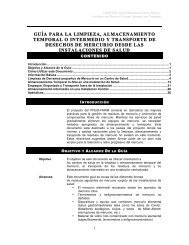Latvia
Latvia
Latvia
You also want an ePaper? Increase the reach of your titles
YUMPU automatically turns print PDFs into web optimized ePapers that Google loves.
Health systems in transition<br />
<strong>Latvia</strong><br />
•<br />
•<br />
expensive 8%<br />
bad diagnosis 8%<br />
During September and October 2005, the EC conducted a Eurobarometer<br />
survey of inhabitants of the EU25. Information was collected on issues that<br />
focused mainly on the extent of trust in doctors and opinions about the frequency<br />
of medical errors. A total of 76% of <strong>Latvia</strong>n respondents believe that medical<br />
errors made by health care professionals are a very significant problem in <strong>Latvia</strong>.<br />
This indicator is just below the EU25 average of 78%. However, 74% of <strong>Latvia</strong>n<br />
respondents believe that medical errors occur in hospitals, compared with only<br />
47% in the EU25. A total of 34% of <strong>Latvia</strong>n respondents have read or heard about<br />
medical errors in <strong>Latvia</strong>n hospitals, which coincides exactly with the average<br />
of the EU25, and 23% of <strong>Latvia</strong>n respondents or members of their family have<br />
suffered from unfavourable impacts of medication recommended by doctors,<br />
compared with only 11% in the EU25 (European Commission 2006).<br />
In 1999 an epidemiological survey was performed in <strong>Latvia</strong> relating to<br />
inhabitants’ opinions about the <strong>Latvia</strong>n health care system (Karaskevica 2004).<br />
Within the framework of this survey, access to health care services was evaluated<br />
by the level of satisfaction with medical service at the place of residence.<br />
The results showed that 43.6% of respondents were satisfied with health care,<br />
32.8% were not, and 23.5% had no definite answer to the question.<br />
The proportion of people in the countryside who reported dissatisfaction<br />
with locally available health care (42.4%) was significantly below the respective<br />
proportion in urban areas (56.9%). It is likely that rural inhabitants have simply<br />
accepted the fact that there is only one health care institution in their local<br />
municipality and that they therefore do not have much choice. At the same<br />
time, whereas urban residents have a choice of provider, they report lower<br />
satisfaction (Karaskevica 2004).<br />
The rural population was less satisfied with the distance that must be covered<br />
to access a health care institution, noting problems regarding transport as well<br />
as dissatisfaction with the opening hours of health care facilities.<br />
Women were l.2 times more likely than men to express dissatisfaction<br />
with health care. The proportion of rural women who were dissatisfied was<br />
lower than those of urban women (42.4% compared with 56.9%, respectively)<br />
(Karaskevica 2004).<br />
A total of 34.5% of respondents complained about long waiting times for<br />
medical services; a further 34.4% complained of lack of access to a specialist<br />
physician; 13.4% had problems with transport; 12.3% noted the long distance<br />
to a health care institution; and 5.4% noted unsatisfactory opening hours at<br />
health care facilities (Karaskevica 2004).<br />
59





